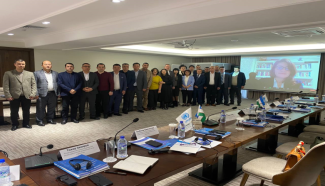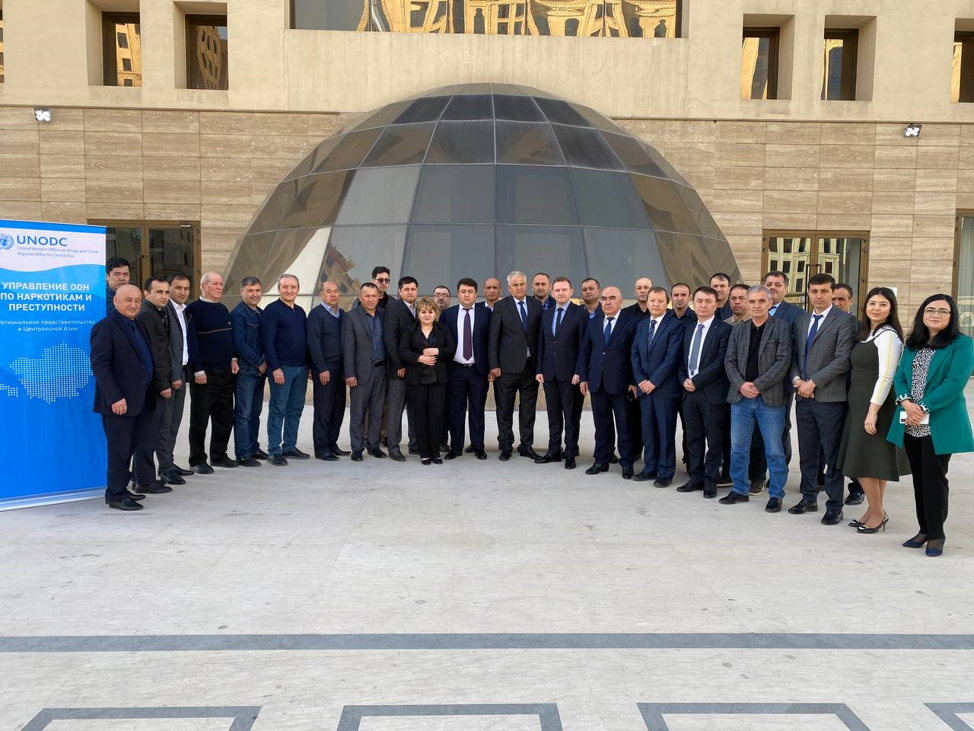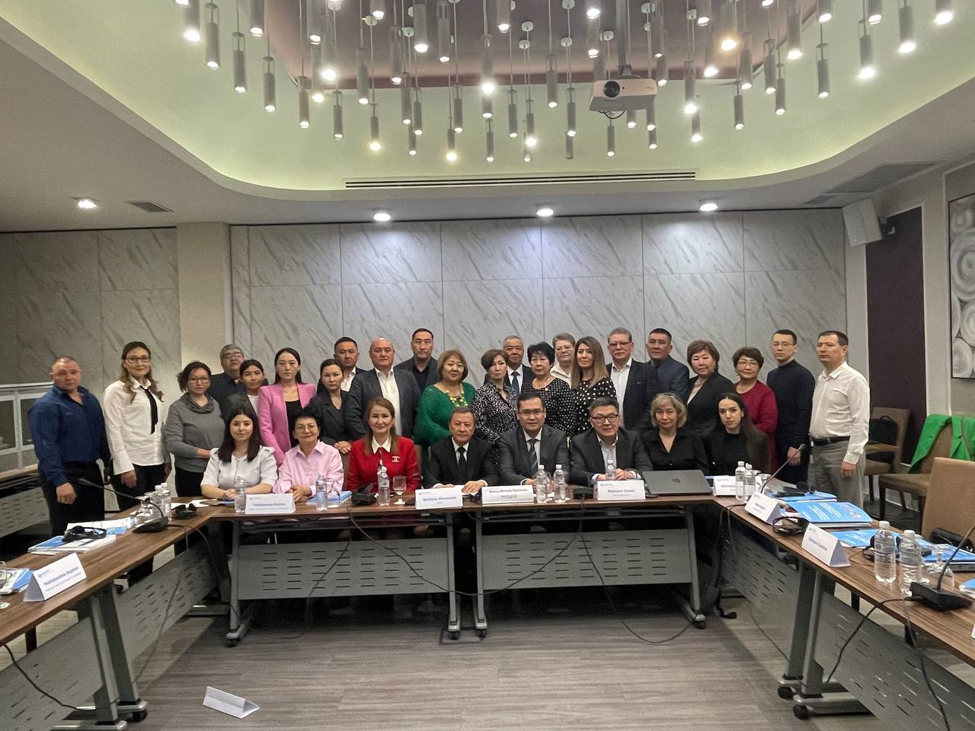National policymakers and key stakeholders in Central Asia enhance their knowledge on drug use disorder system Quality Assurance through UNODC trainings

The UNODC Regional Office for Central Asia (ROCA) conducted a series of National Trainings “UNODC Drug Use Disorder Treatment Systems Quality Assurance (QA)” which took place 27 to 28 February 2023 in Tashkent, Uzbekistan, from 2 to 3 March 2023 in Dushanbe Bishkek, Kyrgyzstan and from 9 to 10 March 2023 in Almaty, Kazakhstan.
The main goal of these three (3) trainings was to increase the capacity of key national stakeholders on the development of the national quality assurance system standards, in line with the UNODC-WHO International Standards for Treatment of Drug Use Disorders. In addition, an implementation strategy was developed at the trainings. This training series also aimed at sensitizing participants on drug use and drug use disorders, highlighting evidence-based responses, and ultimately building of national expertise on quality assurance of drug use disorder treatment services and systems.
“During these trainings, participants will have a unique opportunity to discuss important issues related to the development and institutionalization of a drug treatment services quality assurance mechanisms. The introduction and implementation of these mechanisms will improve the quality of drug dependence treatment and care in the region” said Mr. Borikhan Shaumarov, Senior Programme Officer of UNODC ROCA who coordinated this training series.
The event in Uzbekistan gathered more than 26 professionals and experts from all regions of Uzbekistan. They were from institutions and departments responsible for QA services, including representatives of the Department of Medical Care Organization and Drug Policy of the Ministry of Health, members of the National Working Group on Quality Assurance of drug dependency treatment services, heads and coordinators of the Republican Specialized Scientific-Practical Medical Centre of Narcology and its regional branches.
The event in Tajikistan brought together 29 experts from the Ministry of Health and Social Protection of Population of the Republic of Tajikistan (MHSPP), republican and regional clinical drug use disorder treatment centers under MHSPP, the National Drug Addiction Monitoring and Prevention Center under MHSPP.

28 participants, representing experts from the Ministry of Health responsible for organizing and financing medical care for people with drug use disorders, as well as Leading Specialists from all twenty regional Mental Health Centers of the Republic of Kazakhstan took part in the national training held in Kazakhstan.

“The issue of improving the quality of treatment for drug use disorders in Tajikistan is a priority. Thus, during the training, specialists, having received useful information, conducted a series of group work to assess the existing system of drug treatment and care in the context of each region and at the national level, thereby conducting a review and brief analysis of services. It should be noted that such trainings are important for us. They will serve to improve the quality of medical care, help plan, and will form the basis for conducting quality monitoring and evaluation of the availability of services, as well as service providers for the treatment of drug use disorders” said Mr. Naimjon Malikov, Narcologist of the Republican Clinical Narcology Centre of Tajikistan.
The training was delivered by a UNODC International trainer in an online format. Local national co-trainers assisted the lead trainer.
The on-line training replicated the participatory nature of the face-to-face training and featured plenary presentations by the leading trainer, a range of break out group exercises with feedback, and large group discussions were held in plenary. This capacity building exercise aimed at looking at national system standards and comparing the local system quality in line with the with the UNODC-WHO International Standards for the Treatment of Drug Use Disorders.
“Recent studies of the narcological situation in Kazakhstan show that, despite the fact that the number of people dependent on psychoactive substances according to official statistics is decreasing. The level of prevalence of current substance use remains high. Of particular concern is the active involvement of young people in drug use. The growing problem is also directly related to the growth of offers for the sale of drugs and an increase in demand for them. At the same time, the range, volume and quality of services implemented in the system of drug treatment for the population of the Republic of Kazakhstan is not very high in demand: the percentage of coverage of the profile contingent does not exceed 10-15%. The issues raised at the training aroused great interest among the audience. The development of national standards for quality assurance of the system in accordance with the UNODC-WHO International Standards for the Treatment of Drug Use Disorders, and discussion of the strategy for their implementation became the main topic of the event” noted Ms. Gulmira Sadvakkasova, Head of Information and Analytical Monitoring Unit of the Republican Mental Health Centre of Kazakhstan.
These three capacity building exercises were conducted in the framework of the UNODC global project GLOJ71 “Treating drug dependence and its health consequences: Treatnet II” in collaboration with Sub-programme 3: Addressing drug problems, increasing treatment of drug use disorders, and preventing HIV/AIDS” of the UNODC Programme for Central Asia 2022-2025. Moreover, the event was implemented together with the UNODC Prevention, Treatment and Rehabilitation Section and with the generous support of the U.S. Department of State’s Bureau of International Narcotics and Law Enforcement Affairs (INL).